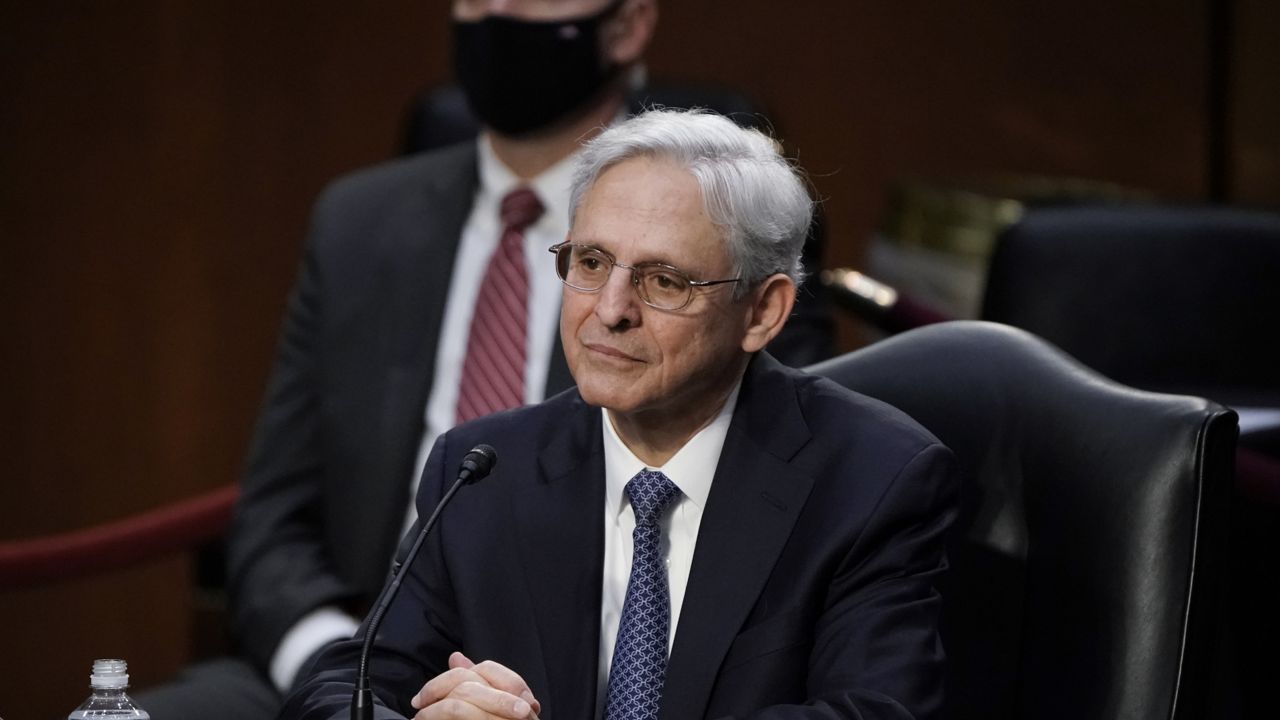The Senate Judiciary Committee voted 15-7 in favor of sending Judge Merrick Garland’s nomination to serve as attorney general to a vote in the full Senate on Monday, likely securing his confirmation as the nation’s top law enforcement official in the coming weeks.
The 68-year-old received moderate support from the committee’s 11 Republican members, with Sens. Chuck Grassley (Iowa), Lindsey Graham (S.C.), John Cornyn (Texas) and Thom Tillis (N.C.) voting in favor of advancing his nomination.
The seven GOP senators who voted against advancing Garland’s nomination were Sens. Ben Sasse (Neb.), Mike Lee (Utah), Josh Hawley (Mo.), Tom Cotton (Ark.), John Kennedy (La.), Ted Cruz (Texas) and Marsha Blackburn (Tenn.).
The full Senate body will vote on Garland’s nomination in the coming days, where he will need a simple majority vote to secure the nomination.
Garland is expected to receive more than enough votes to be confirmed, a far cry from the last time he was tapped by a president to serve in a role requiring confirmation.
Former president Barack Obama nominated Garland for U.S. Supreme Court justice in 2016, but the Republican-controlled Senate refused to give him a hearing. Over the course of Garland’s confirmation hearings for attorney general, several GOP senators acknowledged the failed 2016 Supreme Court nomination.
Sen. Chuck Grassley, who was chairman of the panel at the time and carried out GOP leader Mitch McConnell’s directive to block Garland from the court, defended his role, saying he took a position and “stuck to it.”
While Grassley ultimately voted in favor of advancing Garland’s nomination to serve as attorney general to the Senate on Monday, Grassley said it will be up to Garland “to stand up to efforts to turn the Justice Department into an arm of the progressive wing of the Democratic Party as happened under President Obama."
Still, Grassley voiced his opinion that Garland is “an honorable man,” adding that he hopes his “trust is not misplaced.”
Garland made it clear to senators on the Judiciary Committee that his primary focus upon assuming the role will be on the violent Jan. 6 riot in the U.S. Capitol as part of an overarching effort to combat violent extremism, promising to provide prosecutors with whatever resources they need to bring charges in the cases.
“I will supervise the prosecution of white supremacists and others who stormed the Capitol on January 6 — a heinous attack that sought to disrupt a cornerstone of our democracy: the peaceful transfer of power to a newly elected government,” Garland said in his opening statement.
Also in his opening statement, Garland stressed to senators that the department must ensure laws are “fairly and faithfully enforced” and the rights of all Americans are protected, while reaffirming an adherence to policies to protect its political independence, with the attorney general acting as a lawyer for the American people, not for the president.
“The attorney general represents the public interest, particularly and specifically as defined by the Constitution and the statutes of the United States,” Garland said. “I do not plan to be interfered with by anyone.”
Garland will inherit a Justice Department that endured a tumultuous time under Trump — rife with political drama and controversial decisions — and abundant criticism from Democrats over what they saw as the politicizing of the nation’s top law enforcement agencies. During his four years as president, Donald Trump insisted that the attorney general must be loyal to him personally, a position that battered the department’s reputation.
The department’s priorities and messaging are expected to shift drastically in the Biden administration, with a focus more on civil rights issues, criminal justice overhauls and policing policies in the wake of nationwide protests over the death of Black Americans at the hands of law enforcement.
Garland is an experienced judge who held senior positions at the Justice Department decades ago, including as a supervisor in the prosecution of the 1995 Oklahoma City bombing, which led to the execution of Timothy McVeigh. But he is set to return to a department that is radically different from the one he left. His experience prosecuting domestic terrorism cases could prove exceptionally handy.
His nomination has gained public support on both sides of the political aisle, from more than 150 former Justice Department officials — including former attorneys general Loretta Lynch, Michael Mukasey and Alberto Gonzales, along with 61 former federal judges. Others, including two sons of former Attorney General Edward Levi, have also written letters of support to Congress.
The Associated Press contributed to this report



